What is Airconditioning?
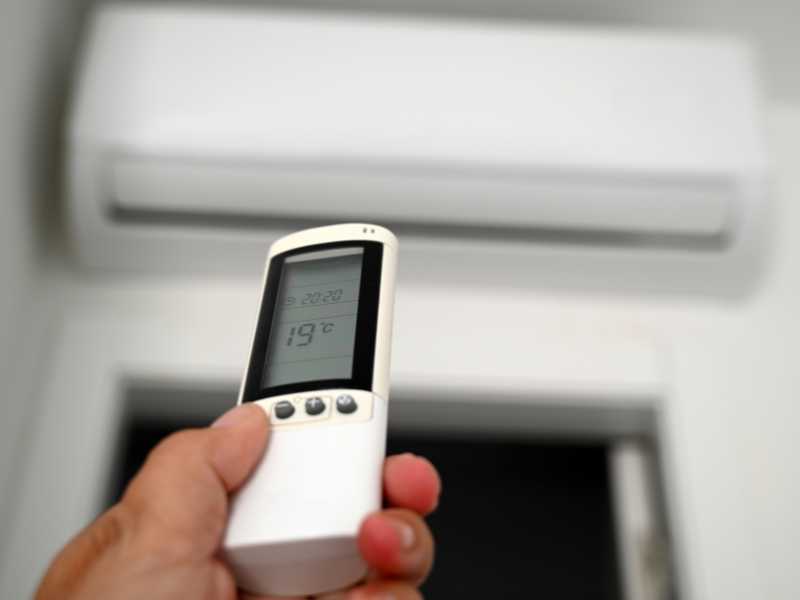
In today’s fast-paced world, the comfort of our living and working spaces is more crucial than ever, and air conditioning plays a fundamental role in providing that comfort. As we delve into the intricacies of air conditioning systems, we’ll uncover not just how they cool and dehumidify our environments but also their significant impact on our health and well-being. From the basics of the refrigeration cycle to the various types of systems available, this article aims to enlighten you on all things air conditioning.
Whether you’re curious about how these systems work, the benefits they offer, or considering an AC installation, we’ve got you covered. Join us as we explore the cool and comforting world of air conditioning, a modern marvel that has become an indispensable part of our daily lives.
Air Conditioning: A System for Cooling and Dehumidifying Air
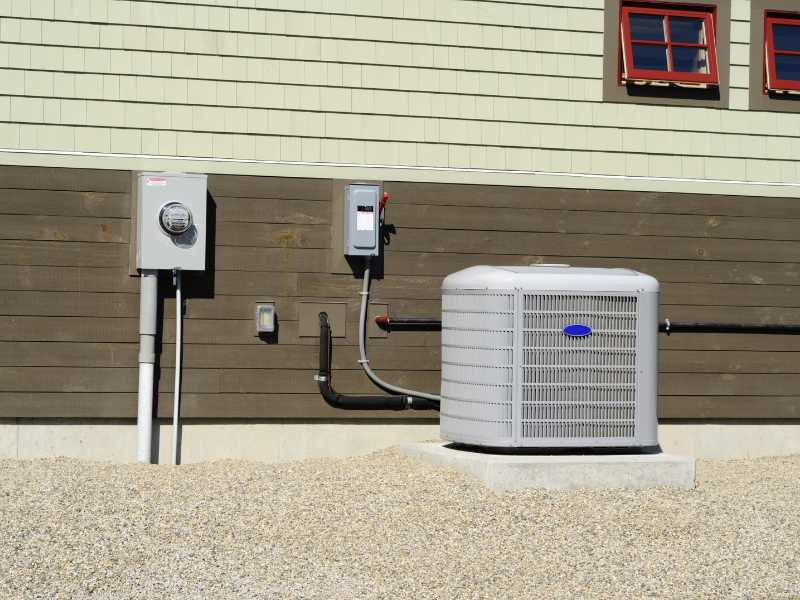
Air conditioning, fundamentally designed to cool and dehumidify air, plays a pivotal role in enhancing indoor comfort and air quality. This system operates by extracting warm air from the interior of a building, processing it to remove moisture and reduce temperature, and then recirculating the cooled air back into the environment. Central to its function is the refrigeration cycle, which uses refrigerant to transfer heat from the inside to the outside, thereby cooling the interior space.
The importance of air conditioning extends beyond merely providing comfort; it also significantly impacts health by improving air quality and reducing the prevalence of heat-related illnesses. In areas with extreme temperatures, it is indispensable for maintaining a safe and comfortable living environment. Moreover, air conditioning systems are integral in various industrial processes where specific humidity and temperature levels are required.
With advancements in technology, modern air conditioning systems have become more energy-efficient and environmentally friendly, incorporating features such as programmable thermostats and advanced filtration systems. These improvements not only enhance the functionality and effectiveness of air conditioning systems but also address growing concerns about energy consumption and environmental impact. Understanding the critical role of air conditioning in today’s world involves recognizing its contribution to maintaining comfortable living and working environments, safeguarding health, and facilitating certain industrial processes.
As technology evolves, the future of air conditioning promises even greater efficiency and sustainability, reflecting its essential place in contemporary life.
How Does Air Conditioning Work?
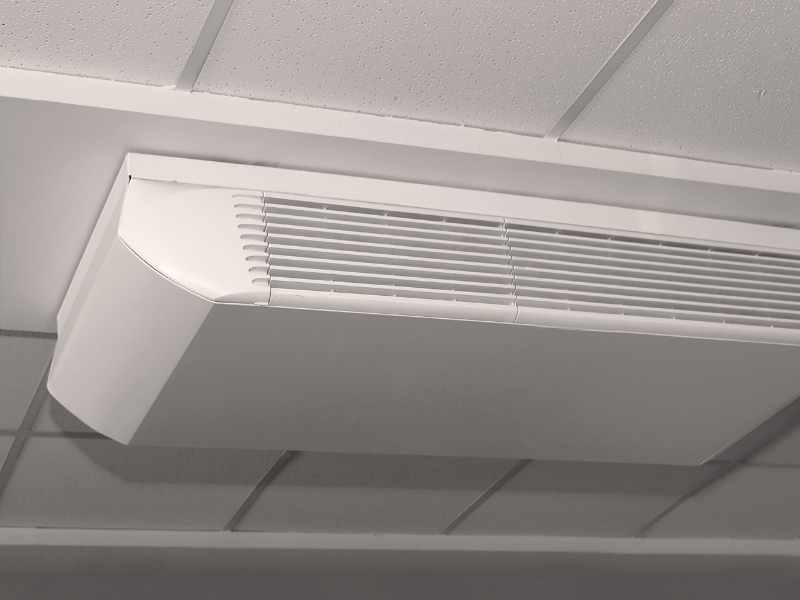
Air conditioning operates through a refrigeration cycle that effectively cools and dehumidifies indoor air. This cycle involves four key components: the compressor, condenser, expansion valve, and evaporator. Here’s a step-by-step breakdown:
- Warm air from inside the room is drawn in and passed over the evaporator coil, where it loses heat. This step not only cools the air but also removes moisture, aiding in dehumidification.
- The compressor then pumps the refrigerant, which has absorbed the indoor heat, to the condenser. In the condenser, the refrigerant releases the absorbed heat to the outside air.
- After releasing its heat, the refrigerant, now cooled, moves through the expansion valve. This action reduces its pressure and temperature further before it cycles back to the evaporator.
- This cycle repeats, continuously pulling warm air and moisture from the room and circulating cooler, drier air back into the space.
This intricate process not only reduces the temperature but also enhances air quality, making indoor environments more comfortable and healthier. Understanding the mechanics behind air conditioning is crucial for selecting the most efficient system to meet your cooling needs while optimizing energy consumption.
Warm Air is Removed via a Refrigeration Cycle
The refrigeration cycle plays a crucial role in air conditioning by removing warm air from indoors and circulating cooler air. This cycle is pivotal in maintaining a comfortable indoor atmosphere.
Components: Compressor, Condenser, Expansion Valve, Evaporator
- Compressor: Acts as the heart of the system, pumping the refrigerant throughout.
- Condenser: Serves to release the absorbed heat into the outside air.
- Expansion Valve: Reduces the refrigerant’s temperature and pressure, preparing it for cooling again.
- Evaporator: Absorbs heat from the indoor air, effectively cooling it down.
Each component is integral to the refrigeration cycle, working in harmony to extract warm air and humidity, thereby ensuring the indoor environment remains cool and comfortable.
Types of Air Conditioning Systems
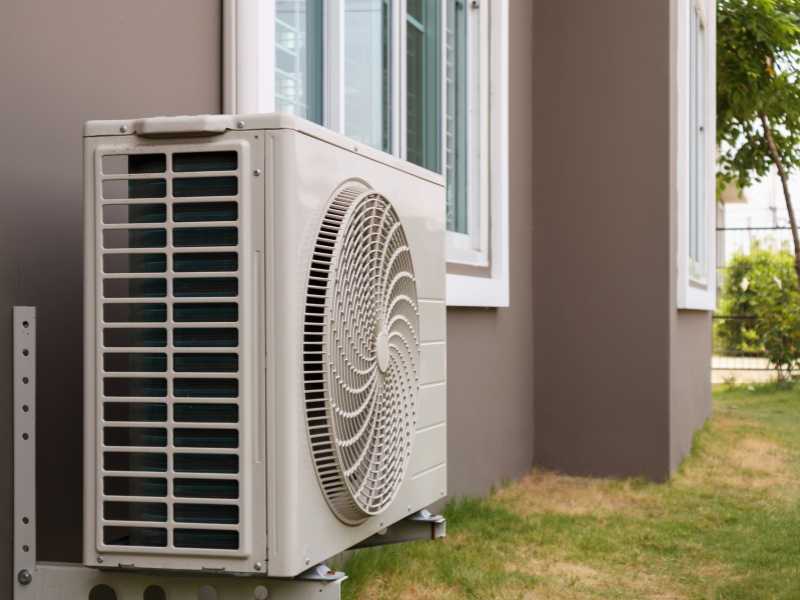
Air conditioning systems are designed to cater to a wide range of cooling needs, varying in size, installation requirements, and functionality. Here’s a closer look at the main types:
- Central Systems: Ideal for cooling multiple rooms or an entire building, central systems distribute air through a network of ducts. This setup allows for a uniform temperature throughout the space.
- Ductless Systems: Also known as mini-split AC systems, these are perfect for homes or spaces where duct installation is not feasible. Ductless systems provide targeted cooling to individual rooms without the need for extensive ductwork.
- Window Units: These compact systems are designed to fit within a window frame, making them a great option for single-room applications. Window units are a straightforward, cost-effective solution for small spaces.
- Portable Units: Offering the ultimate in flexibility, portable units can be moved from room to room, providing cooling wherever it’s needed. This type is ideal for those who require a temporary or movable cooling solution.
Each type of air conditioning system offers unique advantages, making it important to consider your specific cooling needs, space constraints, and budget when selecting the right system for your home or business.
Central Systems Distribute Air Through Ductwork
Central air conditioning systems efficiently distribute cooled air throughout a building or home via ductwork, ensuring a uniform temperature across different rooms or areas.
Ductless Systems for Individual Room Cooling
Ductless, or mini-split, systems provide targeted cooling to individual rooms without the necessity for ductwork, making them perfect for adapting to spaces where traditional ducted systems are impractical.
Window Units for Single-Room Applications
Window air conditioners are compact units designed to fit within a window frame, offering an effective cooling solution for single rooms with minimal installation requirements.
Portable Units for Flexibility and Convenience
Portable air conditioners offer the ultimate in flexibility and convenience, allowing for easy movement from one room to another to cool specific areas as needed without any permanent installation.
Benefits of Air Conditioning
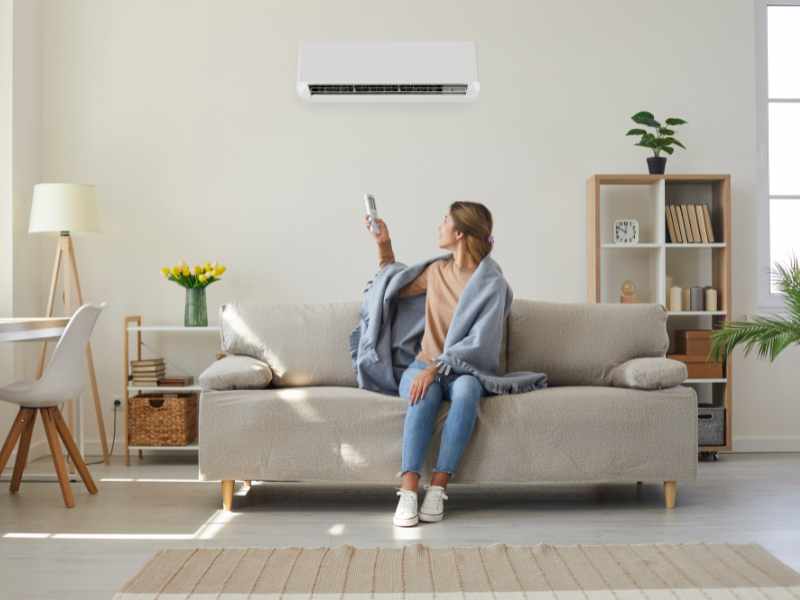
Air conditioning systems offer a plethora of benefits that significantly enhance the quality of life and environment in various ways:
- Comfort in Hot Climates: By effectively lowering indoor temperatures, air conditioning makes spaces more comfortable and livable, even during the peak of summer heat. This cooling effect can improve sleep quality and increase productivity by creating a more pleasant indoor atmosphere.
- Improved Indoor Air Quality: Air conditioners help to filter out pollutants, allergens, and dust from the air, which is especially beneficial for individuals with allergies or respiratory conditions. The ability to circulate and filter air also reduces the risk of airborne diseases.
- Protects Electronics and Furniture: Excessive humidity can be detrimental to both electronics and furniture, causing damage over time. Air conditioning helps to control humidity levels, safeguarding these items and extending their lifespan.
These benefits highlight the importance of air conditioning not just for comfort, but also for health and the preservation of personal belongings.
Comfort in Hot Climates by Lowering Temperatures
Air conditioning plays a crucial role in enhancing comfort during hot climates by lowering indoor temperatures. This cooling effect makes homes and workplaces more comfortable and livable, even during the peak of summer.
Improved Indoor Air Quality by Filtering Out Pollutants
Air conditioning systems improve indoor air quality by filtering out pollutants, allergens, and dust. This is particularly beneficial for individuals with allergies or respiratory conditions, contributing to a healthier living environment.
Protects Electronics and Furniture by Controlling Humidity
By controlling humidity levels indoors, air conditioning helps protect electronics and furniture from damage caused by excessive moisture. This ensures the longevity and functionality of these valuable items, safeguarding your investments.
ALSO READ: Dehumidifiers For A Cooler Home
AC Installation Considerations
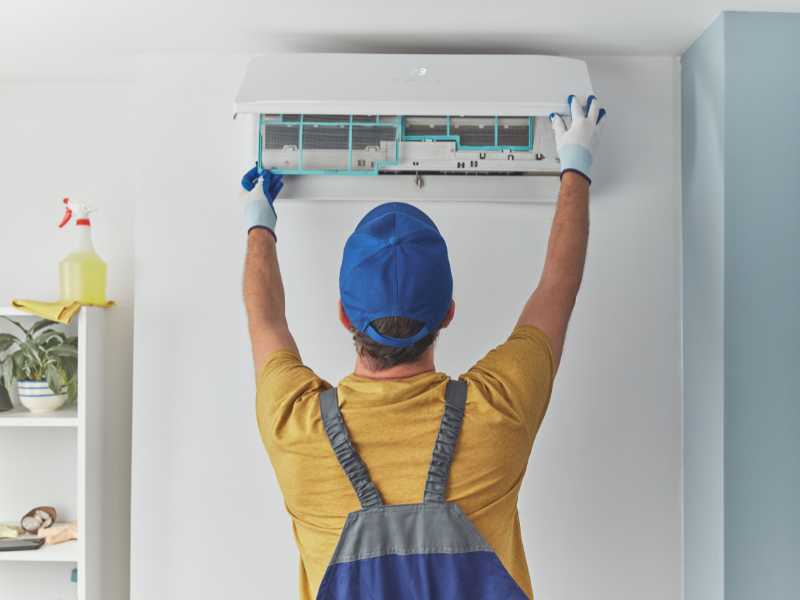
When embarking on the installation of an air conditioning system, it’s essential to consider several key factors to ensure efficient cooling and optimal performance.
- Correct Sizing: Ensuring the system is neither too large nor too small for the space is crucial. An appropriately sized unit will cool effectively and efficiently, avoiding unnecessary energy costs.
- Energy Efficiency: Opting for a system with a high efficiency rating not only reduces the environmental impact but also lowers utility bills. Energy-efficient models are an investment in both comfort and sustainability.
- Type of System: The specific needs of the building should guide the choice of system, whether it’s a central system for whole-home cooling, a ductless system for targeted areas without ductwork, or a portable unit for temporary or flexible cooling solutions.
Careful consideration of these factors will lead to a more comfortable, energy-efficient, and cost-effective cooling solution, ensuring that the installation meets both immediate and long-term needs.
Correct Sizing for Efficient Cooling
Ensuring the correct sizing of an air conditioning unit is pivotal for efficient cooling. A perfectly sized system guarantees optimal performance, minimizing energy consumption and maximizing comfort.
Energy Efficiency for Environmental and Cost Impact
Opting for an energy-efficient air conditioning system is crucial for minimizing environmental footprint and reducing utility bills. High-efficiency models offer significant savings and sustainability benefits over the long term.
System Type to Match Building Requirements
Selecting the appropriate type of system is essential to meet the specific cooling needs of a building. Whether it’s a central AC system, ductless, window, or portable unit, the right choice ensures effective cooling tailored to the unique requirements of the space.
Maintaining an Air Conditioning System
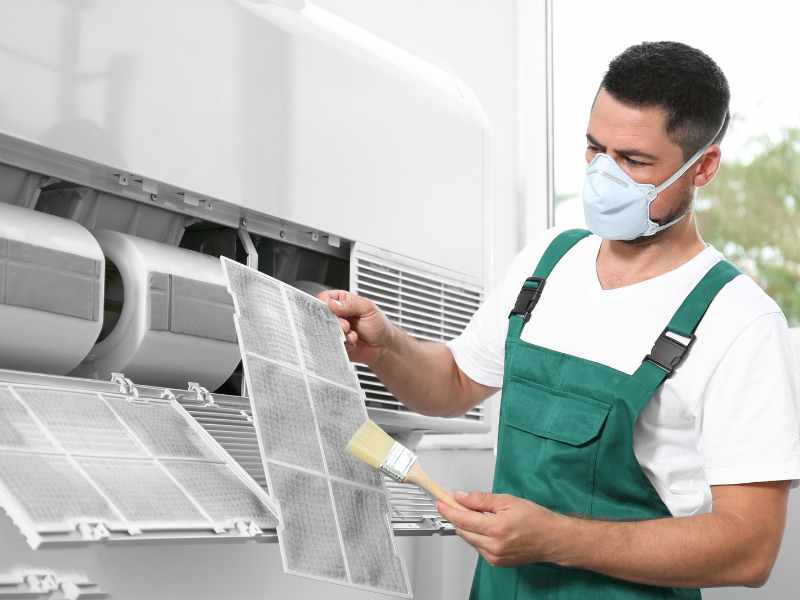
Proper maintenance is essential for ensuring the longevity and efficiency of an air conditioning system. Key practices include:
- Cleaning or Replacing Air Filters: Regularly doing so can significantly improve both air quality and system efficiency. A clean air filter allows for unobstructed airflow and prevents dust and debris from entering the system.
- Annual Professional Checks: Having a professional inspect and service the system annually is crucial for identifying and addressing potential issues before they escalate. This ensures the system operates at peak efficiency.
- Keeping Outdoor Units Clear of Debris: Maintaining clear surroundings for outdoor units helps preserve airflow and reduces strain on the system, preventing unnecessary wear and tear.
Adhering to these maintenance practices not only extends the life of the air conditioning system but also enhances its performance, guaranteeing a consistently comfortable indoor environment.
Clean or Replace Air Filters Monthly
Regularly cleaning or replacing air filters is crucial for maintaining optimal air quality and ensuring the air conditioning system runs efficiently. This routine maintenance can significantly prevent dust and debris from impacting system performance.
Annual Professional Checks for Efficiency
It’s essential to schedule annual professional inspections for your air conditioning system. These checks help identify and address any potential issues early, ensuring the system maintains peak efficiency year-round.
Keep Outdoor Units Clear of Debris
Ensuring the area around outdoor units is clear of debris is vital for maintaining proper airflow and reducing strain on the system. This simple step can greatly enhance the system’s longevity and overall performance.
ALSO READ: How to Clean HVAC System: A Complete Guide
In Summary
Air conditioning has become an essential part of modern living, providing comfort, improving air quality, and protecting our health and belongings. From understanding how these systems work to choosing the right type for your needs, proper installation, and maintenance, every aspect plays a crucial role in ensuring optimal performance and efficiency. As technology continues to advance, air conditioning systems are becoming more energy-efficient and environmentally friendly, promising a cooler, more comfortable future for all.
Ready to upgrade your home or office with a state-of-the-art air conditioning system? Look no further than Callidus Air! Our team of expert technicians specializes in installing, maintaining, and repairing all types of air conditioning systems. Whether you need help choosing the right system, require professional AC installation, or want to schedule regular maintenance, Callidus Air has you covered.
Contact Callidus Air today for all your air conditioning needs!
